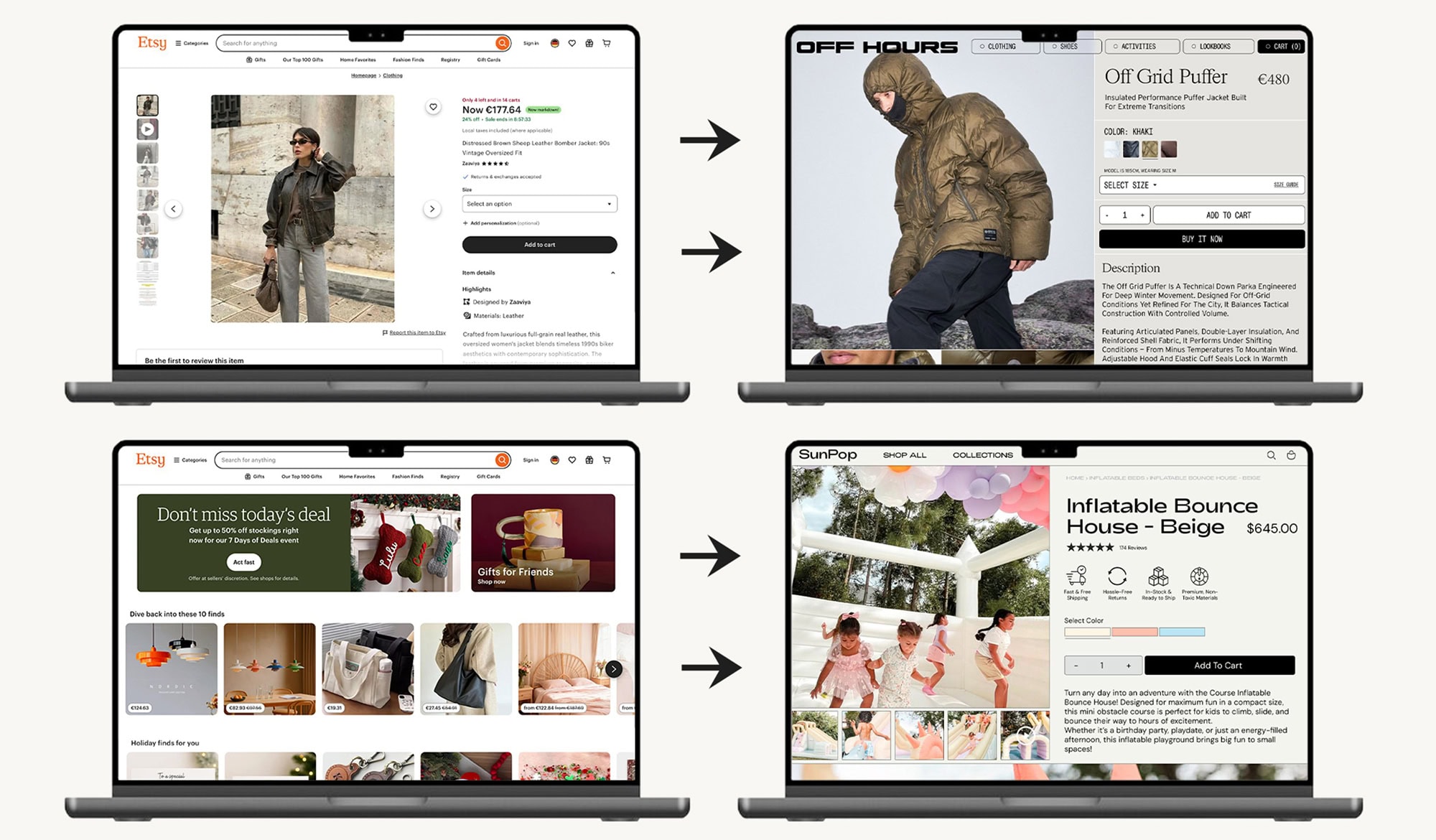AI Search Optimization: How to Get Your Brand Recommended by AI Tools
TL;DR: The search landscape is changing: users now ask AI tools like ChatGPT, Perplexity, Gemini, and Google AI Overviews for direct answers. Traditional SEO alone isn’t enough. To thrive, your brand must be recognized, cited, and recommended by AI. Focus on clear, consistent messaging, structured content, and building authority across the web. Optimize for AI understanding, not just clicks, and monitor citations to maintain visibility.
1. Shift Your Mindset: From Clicks to Answers
AI search has changed the rules. Instead of focusing solely on getting users to click your website, your goal is now to be the answer AI recommends directly.
Think of it like being quoted in a trusted encyclopedia: you don’t need people to find you through a search—they already trust AI to recommend your brand.
How to shift your mindset:
- From “get clicks” → to “be the recommended answer.”
- From “optimize for humans” → to “optimize for AI comprehension.”
- Focus on consistent brand messaging across websites, social media, reviews, and other digital channels.
2. Build a Strong SEO & Web Foundation
Even AI relies on traditional SEO signals to discover content. If your site isn’t visible in search engines, AI may never find you.
Actionable steps:
- Rank on Google, Bing, and Brave—these remain foundational indexes for AI.
- Use long-tail, product-focused keywords that reflect real user queries.
- Ensure pages load fast, are crawlable, and mobile-friendly.
- Maintain clear titles, meta descriptions, and URLs.
Pro Tip: Start by optimizing for traditional SEO, then fine-tune for AI visibility.
3. Structure Content for AI Parsing
AI tools prefer content that is clear, concise, and easy to scan. If your answers are buried in paragraphs of text, AI may skip over them.
How to structure content:
- Answer questions up front—don’t bury the lead.
- Start with a summary or TL;DR box, mimicking Google’s Featured Snippets.
- Use short sentences, bullet points, and structured headings (H2, H3).
- Include FAQs and conversational Q&A sections to cover related queries.
Example: Instead of writing a 1,000-word article on “fast shipping,” start with: “Our service delivers to Europe in 24–48 hours.” Then provide supporting details below.
4. Demonstrate Experience, Authority & Trust (E-E-A-T)
AI favors content that shows real expertise, experience, and credibility. This is your chance to stand out from competitors who haven’t invested in authority-building.
Ways to demonstrate trust:
- Share original data, case studies, and personal testing results.
- Include author bios, certifications, and credentials.
- Display customer reviews, testimonials, and trust badges.
- Create dedicated sections like:
- “Why You Can Trust Us”
- “Our Real-World Test Results”
Keeping content fresh and up-to-date also signals credibility to AI.
5. Build Authority Across the Web
AI evaluates your brand by analyzing mentions and sentiment across multiple platforms. The more consistently your brand is recognized positively, the more likely AI will recommend it.
Practical steps:
- Get cited in trusted publications, blogs, and YouTube videos.
- Encourage user discussions on forums like Reddit, Quora, and niche communities.
- Maintain consistent messaging across all channels—AI rewards repetition across credible sources.
Think of it as creating a “web of trust” that AI can follow to verify your brand.
6. Use AI-Friendly Metadata & Technical SEO
Structured, AI-readable data helps models quickly understand your content and recommend it confidently.
Key technical actions:
- Implement schema markup for FAQs, products, reviews, and how-to guides.
- Add AI-specific metadata such as emerging standards like
llms.txt. - Include accurate alt text for images and videos.
- Ensure your site has SSL, mobile responsiveness, and valid HTML.
The easier it is for AI to parse your site, the higher the chances of being cited or recommended.
7. Own Your Brand Positioning
AI tools prioritize brands with clear, unique value propositions. If your message is vague, AI can’t recommend you confidently.
How to position your brand:
- Identify one core differentiator (e.g., “fastest shipping,” “most durable”).
- Reinforce this across website content, social posts, and reviews.
- Use simple, consistent language for your messaging.
- Create content AI can easily quote: “Brand X = premium iPad case.”
Focus is better than being everywhere at once—clarity wins AI trust.
8. Monitor, Adapt & Expand
AI results evolve rapidly. Continuous monitoring and content iteration are critical to maintaining visibility.
Monitoring tips:
- Use AI tools to check where your brand is cited (ChatGPT, Perplexity, Gemini, etc.).
- Track AI-driven impressions, citation frequency, and branded search volume.
- Repurpose high-performing content into videos, social posts, and forum threads.
- Consider creating YouTube content to increase cross-platform AI visibility.
Treat AI search like a living ecosystem: keep testing, adapting, and expanding your reach.
9. Bonus: Optimize Google My Business (GMB)
Even if you’re outside the U.S., GMB can improve AI visibility for B2B queries:
- Verify your business address (virtual addresses work if policy-compliant).
- Include product photos, categories, languages, and certifications (ISO, CE, etc.).
- Collect English-language customer reviews to support international AI citations.
AI tools often pull data from GMB when answering product or service queries.
Why This Matters
AI search is not a temporary trend. Users increasingly rely on AI to make decisions before they visit your website. Being recommended by AI builds trust, credibility, and brand visibility at the moment of consideration. Brands acting now will enjoy a first-mover advantage similar to early SEO leaders in the 2000s.
Final Thought
Think like a journalist and a teacher: explain clearly, cite credible sources, show real-world experience, and make your answers easy to extract. The brands that master AI search optimization today will dominate the “answer-first” era tomorrow.








.jpg)

